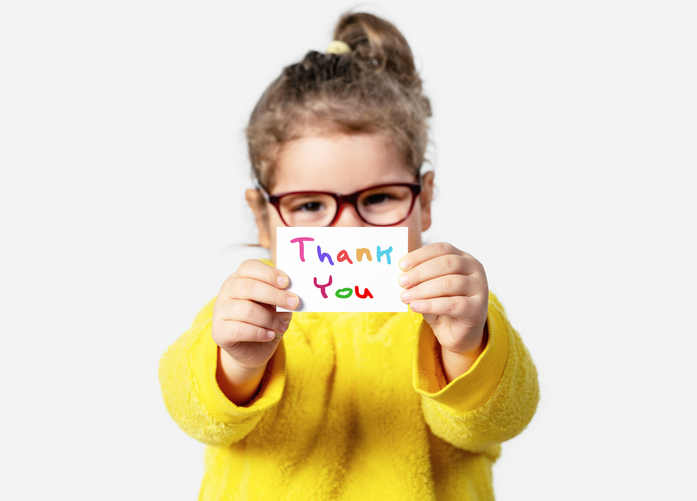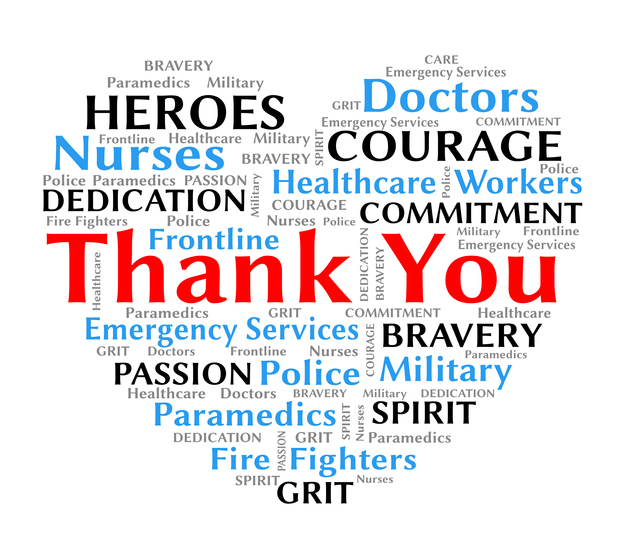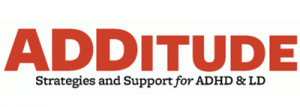 It’s clear that this holiday season won’t look like anything we’re accustomed to. Unable to gather safely with beloved family and friends, many of us (myself included) are planning for much smaller dinners. With all of the uncertainty we’ve been facing as individuals and as a country, it’s more important than ever to teach and practice gratitude for what we have and what’s gone well. How can you do this when you (and your family) may be frustrated, disappointed and anxious?
It’s clear that this holiday season won’t look like anything we’re accustomed to. Unable to gather safely with beloved family and friends, many of us (myself included) are planning for much smaller dinners. With all of the uncertainty we’ve been facing as individuals and as a country, it’s more important than ever to teach and practice gratitude for what we have and what’s gone well. How can you do this when you (and your family) may be frustrated, disappointed and anxious?
Gratitude: Thankful
The Cambridge Dictionary defines gratitude as “a strong feeling of appreciation to someone or something for what the person has done to help you.” I like this definition because it’s grounded in human relationships, and is more specific than ‘being thankful.’
For some people, it may be easy to feel generally thankful. For others, it may be tougher. Perhaps someone you care about has been sick or died; your children are struggling with remote/hybrid school; or you are dealing with food, housing or job insecurity. Whatever your particular situation may be, shifting the focus and noticing how someone has helped in recent months may open your eyes and your heart to a more accessible type of gratitude.
Expressing appreciation can lead to stronger relationships

In our crazy busy lives, we may toss a perfunctory ‘thank you’ for a small act of kindness without wholeheartedly expressing it. Though we may value a patient teacher, an attentive nurse or a competent mechanic, we often don’t take the time to let them know. I believe that the holiday season, starting with Thanksgiving and continuing on through the New Year, offers us an opportunity to express genuine gratitude with people who have touched our lives.
Children and teens with ADHD, who may miss social cues or be unaware of how their actions impact others, really benefit from slowing down and taking stock of helpers in their lives. Teaching kids to notice how people treat them and how to acknowledge consideration and generosity shows them that these qualities matter. They learn compassion, understanding and empathy.
Here are a few tips to practice gratitude in your family this year:
1. Notice what you have, not what you don’t.
We all can live in the ‘shoulds’ and ‘wants’. “I should be able to do X.” “I want a new phone.” When your son or daughter rails on how unfair it is that they don’t have this or that, trying to convince them otherwise wastes your time and energy. Instead of lecturing them and going negative yourself, take a deep breath, validate their longing and encourage them to keep a list of what they want for the future. Try not to engage but, if you must say something, remind them to focus on what they have and set goals for getting what they want.
2. Build awareness of gratitude: A family activity

Grab a stack of Post-Its or scrap paper, and gather your kids together for a 15 minute activity. Ask them to write down 3 specific things in their lives that they appreciate. From sports teams, to their iPad, to hot showers–anything is acceptable.
Next, ask them to connect those items to the person who made sure they happened or provided them. Post these on a large piece of paper, bulletin board or wall in a common area, such as the kitchen or living room. This activity helps your kids see that the cool stuff in their lives is linked to real people.
3. Express gratitude, simply or creatively:

Similar to learning how to give an authentic apology, kids with ADHD may not express appreciation as we typically expect. While eye contact and a heartfelt ‘thank you’ are ideal, your child or teen may do better with writing or expressing their gratitude in other ways.
Consider doing something fun this holiday: Write everybody’s name down on separate pieces of paper. Then, place them in a hat. Have each family member pick a name, and then write or draw a thank you note for an act of kindness that person has shown during the past week, month or year. Place these notes on plates, and open them together before your meal.
The day after Thanksgiving is also a holiday
 The day after Thanksgiving is often filled with Black Friday shopping. But, it’s also a holiday. On October 8, 2008, President George W. Bush signed The Native American Heritage Day bill into law. This day is designated to pay tribute to Native Americans and their important legacy. Consider taking a few minutes to talk with your children about these contributions and how they have enriched our lives.
The day after Thanksgiving is often filled with Black Friday shopping. But, it’s also a holiday. On October 8, 2008, President George W. Bush signed The Native American Heritage Day bill into law. This day is designated to pay tribute to Native Americans and their important legacy. Consider taking a few minutes to talk with your children about these contributions and how they have enriched our lives.
Read more blog posts:
- Holidays and Family Estrangement
- Back Together with Gratitude: Managing your emotions and expectations during the holidays
- Family, Forgiveness and ADHD: Loving and letting go, during and beyond the holiday season
Source: Meaning of gratitude in English. Cambridge English Dictionary. (n.d.). Retrieved December 20, 2021, from https://dictionary.cambridge.org/us/dictionary/english/gratitude



 My heart goes out to teens and young adults. Staying compassionate, offering to collaborate on tasks and being available to talk through emotions is critical in reducing teen stress and anxiety during this pandemic. Don’t try to solve issues. Offer suggestions and avoid getting hurt if they aren’t taken. Young adults often like to figure things out for themselves, which means trial-and-error learning. Sometimes the best support you can give is managing your own frustrations, sharing your feelings without blame or guilt and validating their successes.
My heart goes out to teens and young adults. Staying compassionate, offering to collaborate on tasks and being available to talk through emotions is critical in reducing teen stress and anxiety during this pandemic. Don’t try to solve issues. Offer suggestions and avoid getting hurt if they aren’t taken. Young adults often like to figure things out for themselves, which means trial-and-error learning. Sometimes the best support you can give is managing your own frustrations, sharing your feelings without blame or guilt and validating their successes.  playing a fun video game. It’s easy for teens to dismiss what they have in favor of longing for what they don’t. Help them shift their perspective to see the positive things that are going on instead of focusing on the things they are missing.
playing a fun video game. It’s easy for teens to dismiss what they have in favor of longing for what they don’t. Help them shift their perspective to see the positive things that are going on instead of focusing on the things they are missing.
 How ADHD Is Diagnosed. There’s no single test that can determine if you or your child has ADHD, but we’ll help you get the answers you’re seeking.
How ADHD Is Diagnosed. There’s no single test that can determine if you or your child has ADHD, but we’ll help you get the answers you’re seeking. 





